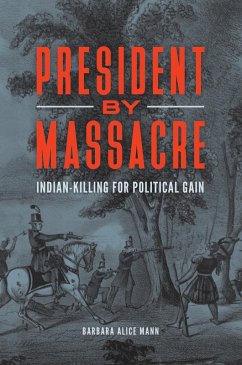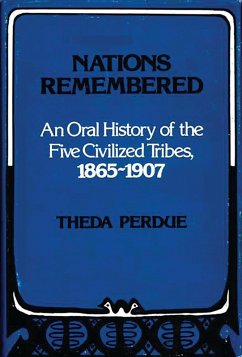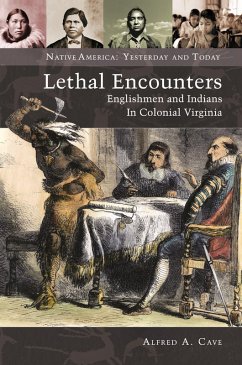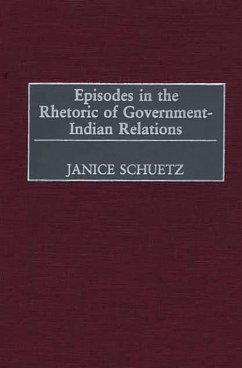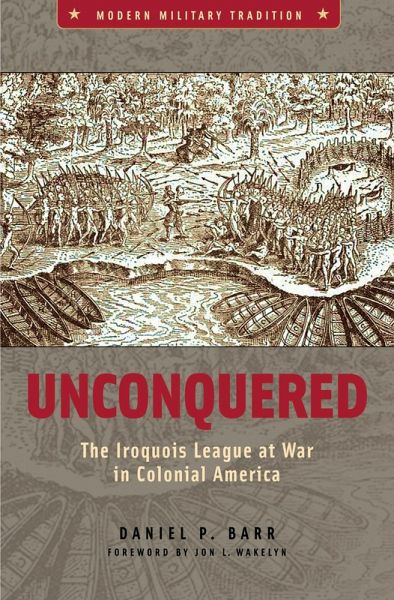
Unconquered (eBook, PDF)
The Iroquois League at War in Colonial America
Versandkostenfrei!
Sofort per Download lieferbar
40,95 €
inkl. MwSt.
Weitere Ausgaben:

PAYBACK Punkte
20 °P sammeln!
Unconquered explores the complex world of Iroquois warfare, providing a narrative overview of nearly two hundred years of Iroquois conflict during the colonial era of North America. Detailing Iroquois wars against the French, English, Americans, and a host of Indian enemies, Unconquered builds upon decades of modern scholarship to reveal the vital importance of warfare in Iroquois society and culture, at the same time exploring the diverse motivations-especially Iroquoian spiritual and cultural beliefs-that guided such warfare. Economic competition and rivalry for trade were important factors ...
Unconquered explores the complex world of Iroquois warfare, providing a narrative overview of nearly two hundred years of Iroquois conflict during the colonial era of North America. Detailing Iroquois wars against the French, English, Americans, and a host of Indian enemies, Unconquered builds upon decades of modern scholarship to reveal the vital importance of warfare in Iroquois society and culture, at the same time exploring the diverse motivations-especially Iroquoian spiritual and cultural beliefs-that guided such warfare. Economic competition and rivalry for trade were important factors in Iroquois warfare, but they often provided less motivation for waging war than Iroquoian spiritual and cultural beliefs, including the important tradition of the mourning war. Nor were European agendas particularly important to Iroquois warfare, except in that they occasionally coincided with Iroquois designs. Europeans influenced and incited, both directly and indirectly, conflict within the Iroquois League and with other Indian nations, but the peoples of the Iroquois League waged war according to their own cultural beliefs and by their own rules. In reality, the Iroquoi League rarely waged war against anyone. Rather its individual member nations drove the warfare often attributed to the whole, creating a shifting, amorphous political and military position that allowed member nations to pursue separate policies of war and peace against common foes and multiple enemies. Unconquered also seeks to dispel longstanding beliefs about the invincible Iroquois empire, myths that have been dispelled by focused academic studies, but still retain a powerful resonance among popular conceptions of the Iroquois League. While the Iroquois created far-reaching networks of trade and destroyed or dispersed Indian peoples along their borders, they created no expansive territorial empires. Nor were Iroquois warriors unequaled in battle. Europeans, Americans, and Indians defeated Iroquois warriors and burned Iroquois villages as often as they tasted defeat, and on more than one occasion they brought the Iroquois League to the brink of utter ruin. Yet the Iroquois were never completely destroyed.







